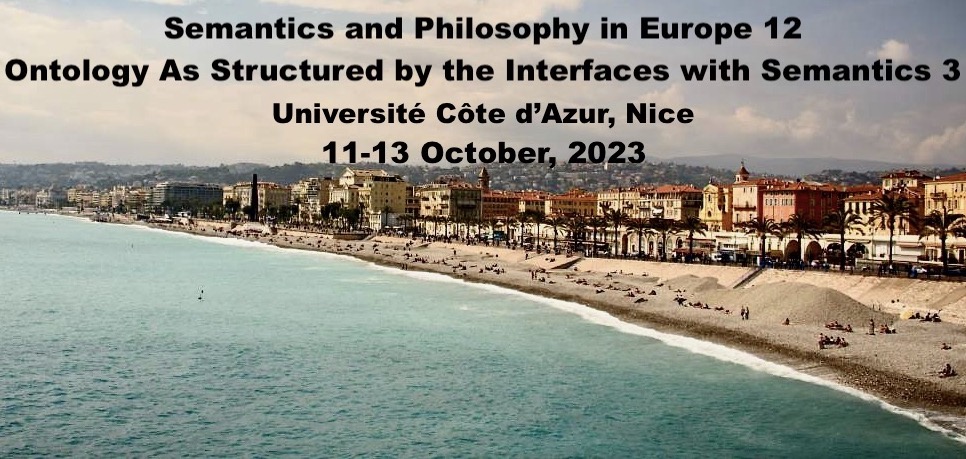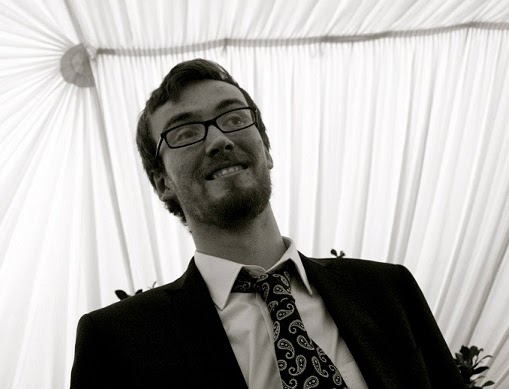
|
|
|
Interviews > Interview with James Miller

Dr. James Miller is an assistant professor in the Philosophy Department at Durham University. Dr. Miller is a metaphysician and philosopher of language.
OASIS: Tell us a little about yourself.
JM: I did my PhD a number of years ago at Durham University, and that PhD was focused on issues related to the intersection between metaphysics, philosophy of language, and linguistics. Since then I've become more and more interested in what I call the metaphysics of words and language, which I take to be the domain that's about what sorts of things, in the metaphysical sense of things, linguistic objects are.
OASIS: What is everybody wrong about?
I don't think there's something everyone is wrong about, but I'll use this question to point out something that people have overlooked - philosophers, but also linguists. This issue is the metaphysics of words. As I see it, this issue is related to but distinct from what philosophers and linguists have thought about in relation to language, but can have important effects on what philosophers and linguists say about language.
So here's an example I've been thinking about recently about the reappropriation of words. This is well-known to be a phenomenon where a group of people who are targeted by a slur or another form of hate speech reappropriate a word to gain control over it and change its meaning, and potentially work to remove the negative effects of the word. One thing that the literature on this topic seemingly hasn't noticed is that it has to be the same word before and after the reappropriation, the "identical" word. This in my view is a metaphysical question that has to do with the nature of a particular linguistic object or objects. It's something I hope to highlight to show what people have not noticed.
OASIS: What's the story of how you came to be interested in the topic you'll be talking about at SPE 12/OASIS 3?
So I will be talking about some recent work I'm doing on the metaphysics of words. I became interested in this topic a few years after my PhD when I realized no one was doing it. I realized that relatively mainstream metaphysical notions may help us understand various linguistic phenomena. But the real root of my interest probably comes from PhD supervision meetings, where I had one philosopher of linguistics and one metaphysician as supervisors, constantly talking past each other. It took me a few years to realize why.
OASIS: So... why?
Because they thought about language in a very different way, without realizing that they were thinking about language in a very different way. The philosophy of linguistics is often interested in the subject matter of linguistics. It's kind of the philosophy of science applied to linguistics. Whilst philosophers of language often focus on issues around semantics, certain puzzles, and some issues related to logic. My supervisors were I think examples of people who think about these things in these ways, and what I want to do in my work is to bring these two things together. I happen to do that through thinking about metaphysics.
OASIS: Linguists get asked this a lot so we're going to inflict it on you: How many languages do you speak?
JM: Strictly speaking, one. Though I am trying to learn Italian. But if I answered more philosophically, I'd answer none, because there's no such thing as a language.
OASIS: What advice would you give linguists or philosophers presenting their work to philosophers or linguists?
JM: The main idea is to be overly and incredibly clear about terminology. I think a lot of the difficulty philosophers and linguists have talking to each other comes from us using the "same word" to refer to completely different phenomena. Philosophers can be bad about this internally, but I think it gets even worse when we cross over into other domains. A good example of that would be even the word language itself. Linguists, or at least the part of linguistics I'm most familiar with, will often think of language as the language faculty or I-language in Chomsky's sense, whilst philosophers normally mean something more like an abstract entity that bears close relation to logic.
OASIS: Your PhD thesis in six words.
JM: Metaphysical realism, deflationism, and generative grammar.
OASIS: Thanks for joining us for this interview. We look forward to your talk at OASIS 3 / SPE 12.
JM: Thanks for the invite and looking forward to meeting everyone soon.

